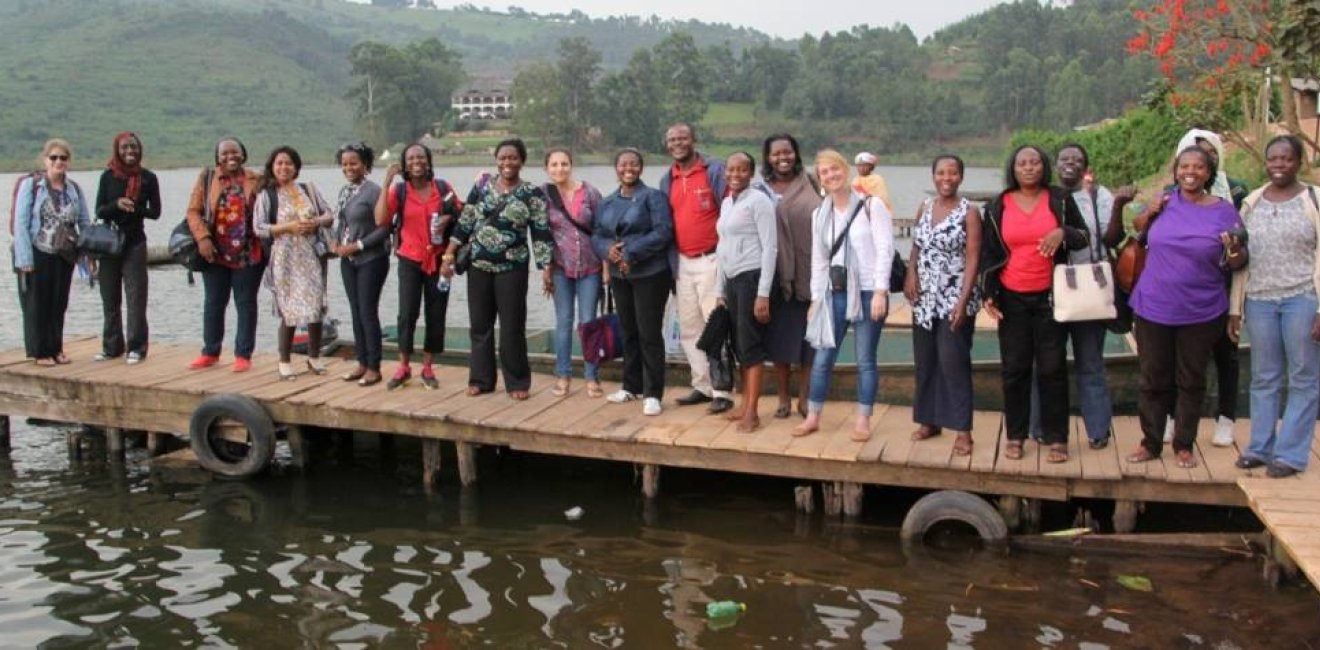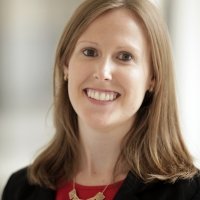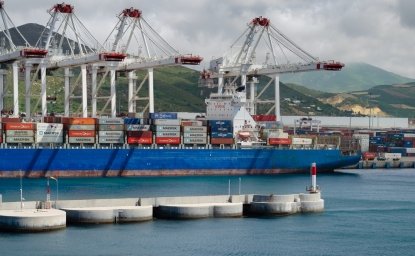International Women’s Day is a time to celebrate the achievements of women and to reflect on the barriers that women have overcome economically, politically, and socially. It is a time when women around the world come together to share stories of empowerment and to encourage others that change is possible. The Women in Public Service Project (WPSP) Institute currently taking place in Uganda embodies the definition and the spirit of International Women’s Day. It signifies women working together to achieve parity and demonstrating their dedication to empowering a future generation of women leaders in public service. I could not be more excited about the development of WPSP Uganda, which was inspired by a WPSP Institute two years ago, and how women from around the world are coming together to increase the number of women leaders in public service.
The WPSP Institute in Uganda was the brainchild of an extremely motivated individual who attended the WPSP Institute at Bryn Mawr College in 2013 and one of the most energetic women I have ever met, Agnes Igoye. The 2013 Institute brought together 43 women representing 35 countries throughout Asia, Africa, Europe, the Middle East, and the Americas, from diverse backgrounds, ethnicities, ages, cultures, and religions to support the role of women in public service. While attending the Institute, Agnes was inspired by the words of women leaders from around the world. More so, she saw the 2013 WPSP Institute Delegate Declaration as a commitment to bring back the skills she had learned through the Institute to mentor and support other women in her community. When the chance arose to engage women in her own country, she was eager to make it happen. Agnes’ idea to develop a WPSP Institute in Uganda was a vision that exceeded expectations of sharing knowledge from the Institute and giving back to the community, though we should have realized that the capabilities of WPSP delegates are endless. As Agnes told me, the WPSP Uganda Institute was “inevitable” given the networking, skills, and confidence she received through attending the Institute.
"I realized no one is going to pull our hands and drag us to the table but we must walk there ourselves. And part of this walk is through getting the right leadership skills and knowledge so that one ears a right to be at the table. That’s why we are having this institute, so we can walk, no, run to the table to take up our role to ensure leadership for transparent and accountable governance."
What is even more inspiring about the WPSP Uganda is the number of Agnes’ colleagues and friends from the WPSP Institute in 2013 that wanted to become involved in supporting this initiative. Several of the speakers are alumnae from the WPSP Institute at Bryn Mawr who have devoted their own resources to making the Uganda Institute a success. WPSP at the Wilson Center is so proud of these women and their contributions to their communities and colleagues and we are delighted to showcase their amazing work to empower other women and promote gender parity in public service.
“The WPSP Uganda Institute therefore is a true testimony that women are unstoppable when they unite in action.”
Held at the Entusi Resort and Retreat Center from March 6-9, WPSP Uganda brings together women from varying professional backgrounds each with an emphasis on gender equality and women’s empowerment in Uganda and surrounding countries focused on “Leadership for Transparent and Accountable Governance.”
In recognition of International Women’s Day and the WPSP Institute in Uganda, I reached out to the delegates of the Institute and asked them to share the challenges they have faced, their stories of empowerment, and to describe what International Women’s Day means to each of them. Here are some of their responses:
"I believe in equal opportunities and a world that respects the rights of women. I take keen interest in problems that affect the development of women and use the media platform to campaign against such injustices and customs that symbolize women as objects, or even mediocrities and not change agents.
International Women’s Day is a day we use to reflect on the journey thus far and look ahead to embrace a better future for tomorrow’s woman. A future free from battering, a future free from widow inheritance, a future free of female genital mutilation, a future free from defilement and rape and a future where we can collectively celebrate womanhood."
Sylvia Nankya
"Culture of masculinity and rigidity is the main problem that has hindered or blocked majority of women from attaining their mission of emancipation."
Neema Murembe
"We should be united in empowering women and girls. Holding constructive meetings to reflect on challenges women face at different levels would speed up the transformation of gender equality and sustainable development."
Elliot Tumwijukye
"International Women’s Day means celebrating ourselves as women; a day to appreciate our roles in enhancing development and fighting for the realization of their rights at all levels. It is also a platform for women to assess their involvement, participation and contribution to developing a gender sensitive world.
Like most women coming from developing countries or countries where cultural values suppress women’s capacities, my journey to leadership was such a big struggle. This journey involved many efforts to prove myself worthy to become a woman leader. It involved a lot of convincing even when the decision makers believed I had the potential, qualifications, experience, and qualities of a good leader."
Mirembe Agnes
"International Women’s Day is a celebration of women’s efforts towards all development initiatives in our communities and the world. It is a day when we take time to reflect on how far we have come, where we are, and where we want to go."
Prossy Kawala
I hope these reflections from the WPSP Uganda delegates will provide a deeper understanding of the significance of International Women’s Day and inspire others to celebrate women’s achievements thus far and realize what more we are capable of accomplishing.
To learn more about the speakers and delegates of the WPSP Uganda or the Institute, visit www.wpsuganda.com or follow the Institute live on Twitter @wpspuganda






